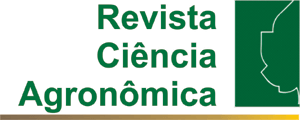This research aimed to evaluate the genetic divergence among 57 accessions of common bean genotypes being 31 genotypes from southern Espírito Santo, Brazil, 20 cultivars from EMBRAPA and 6 commercial cultivars. Three experiments were conducted in the agricultural years 2008/2009 and 2009/2010, two in the experimental area and a CCA-UFES at IFES, both sites in the municipality of Alegre, ES, Brazil. The desing was a randomized block with tree replications. Data were subjected to analysis of variance test by F. By multivariate analysis assessed the genetic diversity among accessions using the UPGMA clustering method and canonical variables based on the Mahalanobis distance. The variables that contributed most to the separation of the accessions were one hundred seed weight (P100) with 24.01%, growing season (PV) with 20.39%, reproductive period (PR) with 17.16% and seed length (CS) with 14.87%. The accessions were less divergent the F15 and F18 (9.18) and the most divergent F10 and F08 (1308.62). Multivariate analysis showed a low genetic similarity between cultivars and also between accessions from EMBRAPA and between them. Site accesses demonstrated significant genetic diversity. Both the cluster analysis and the canonical variables were able to separate the access according to the centers of origin.
Phaseolus vulgaris L.; Germoplasm characterization; UPGMA; Canonical variables

 Genetic diversity of common bean accessions by agronomic traits
Genetic diversity of common bean accessions by agronomic traits



